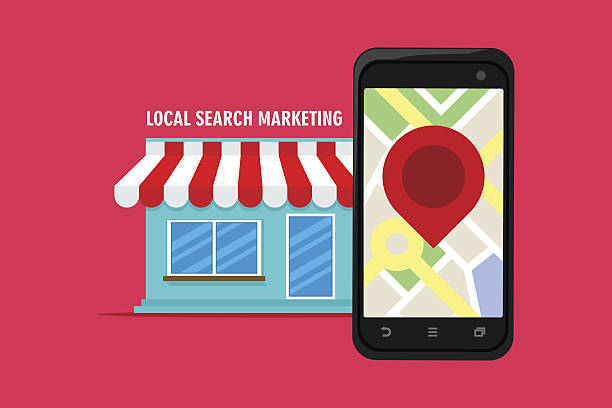Local SEO Checklist: 8 Key Tips on How to Rank Locally in Denver, Co
If you're a business owner in Denver, Colorado, then local SEO is critical to your success. Ranking high in Google Maps and organic search results for relevant keywords is key to reaching new customers and growing your business. In this article, we'll give you 10 tips on how to rank locally in Denver.
What is local SEO is and why it's important?
But before we dive in, let's first define what local SEO is and why it's important. Local SEO is the process of optimizing your website and online presence to rank higher in search results for keywords related to your business and location. For example, if you're a Denver-based plumber, you'll want to optimize your site for keywords like "plumber Denver" and "Denver plumbing."
Why is local SEO important? Because it allows you to reach new customers who are actively searching for businesses like yours. According to BrightLocal's 2018 Consumer Review Survey, 97% of consumers read online reviews for local businesses (and 85% trust them as much as personal recommendations). Furthermore, 46% of consumers say they wouldn't use a business with less than four stars. So, if you're not ranking high in local search results, you're missing out on valuable leads and customers.
Now that we've answered the question "what is local SEO?" let's move on to our tips for how to rank locally in Denver, Colorado.
Tip #01: Register and Optimize Your Google My Business Listing
Google My Business (GMB) is a free listing that allows businesses to manage their online presence across Google Search and Maps. When potential customers search for businesses like yours on Google, your GMB listing will appear in the search results.
To optimize your GMB listing, start by claiming your business and verifying your ownership. Then, fill out every field of your listing with as much accurate and detailed information as possible. Include important details like your business name, address, phone number, hours of operation, category, website URL, and photos.
Next, add relevant keywords to your business description to help potential customers find your business. For example, if you're a Denver-based dog groomer, you might include keywords like "pet grooming," "dog salon," and "animal care."
Finally, encourage your happy customers to leave reviews on your GMB listing. Google uses customer reviews as a ranking factor, so the more positive reviews you have, the higher you'll rank in local search results.
Tip #02: Optimize Your Website for Local SEO
In addition to optimizing your GMB listing, you'll also need to optimize your website for local SEO. Start by ensuring that your NAP (name, address, and phone number) is consistent across your website, GMB listing, and other online directories. Inconsistent NAP information can confuse Google and hurt your ranking in local search results.
Next, add location pages to your website. Location pages are dedicated pages that include detailed information about each of your business locations. Be sure to include relevant keywords on these pages, as well as your NAP information, business hours, services offered, and photos.
If you have multiple locations, you'll also want to set up geo-targeted landing pages. Geo-targeted landing pages are pages that are optimized for a specific city or region. For example, if someone searches for "plumber Denver," they'll be taken to a landing page that's specifically optimized for Denver plumbers.
You can create geo-targeted landing pages by setting up subdirectories on your website (e.g., example.com/denver) or by using separate domains for each location (e.g., denverplumber.com).
Tip #03: Create Local Content
Another important local SEO services tip is to create local content. This includes blog posts, articles, and other pieces of content that are relevant to your business location. For example, if you're a Denver-based real estate agent, you might write blog posts about the Denver housing market or the best neighborhoods in the city.
When creating local content, be sure to include relevant keywords and phrases. This will help potential customers find your content when they're searching for information about your business location.
You should also include your NAP information on all of your local content. This helps Google understand that your content is relevant to a specific location. You can do this by including a local keyword in your title (e.g., "Denver plumber") or by adding a location tag to your blog post (e.g., "This blog post is about the Denver housing market").
Tip #04: Build Local Citations
Citations are online mentions of your business name, address, and phone number. They help Google verify your business information and improve your ranking in local search results.
There are two types of citations: structured and unstructured. Structured citations are listings on directories like Yelp, Yellow Pages, and Angie's List. Unstructured citations are mentions of your business information on websites, blog posts, and articles.

To improve your ranking in local search results, you'll need to build both types of citations. Start by claiming and optimizing your listings on popular directories like Yelp, Google My Business, and Bing Places for Business. Then, reach out to local websites and ask them to mention your business information on their site.
You can also create local citations by writing guest blog posts on other websites and including your business information in your author bio.
Tip #05: Optimize Your Website for Mobile
Google's mobile-first indexing means that the company now uses the mobile version of your website to determine your ranking in search results. This is because more and more people are using their smartphones to search for businesses online.
To make sure your website is optimized for mobile, start by checking that your website is responsive. This means that your website will automatically adjust to fit the screen size of any device, whether it's a smartphone, tablet, or desktop computer.
You should also check that your website loads quickly on mobile devices. Google recommends that websites take no more than three seconds to load on a mobile device.
Finally, be sure to include your NAP information on your website. This will help potential customers find your business when they're searching for local businesses on their smartphones.
Tip #06: Get Reviews From Your Customers
Customer reviews are one of the most important ranking factors in local search engine optimization. Google uses customer reviews to determine the quality and relevance of your business. The more positive reviews you have, the higher you'll rank in local search results.
To get reviews from your customers, start by asking them to leave a review on your Google My Business listing. You can also reach out to customers who have left negative reviews and ask them to revise their review.
Another great way to get reviews is to offer customers a discount or freebie in exchange for their review. Just be sure that you don't offer anything of value in exchange for a positive review, as this is against Google's guidelines.
Tip #07: Manage Your Online Reputation
Your online reputation is the overall opinion of your business that is reflected online. This includes your customer reviews, social media posts, and articles written about your business.
To manage your online reputation, you should regularly monitor what is being said about your business online. You can do this by setting up Google Alerts for your business name and keywords. This will send you an email notification whenever your business is mentioned online.
You should also respond to both positive and negative reviews in a timely manner. Thank customers for their positive reviews, and address any concerns raised in negative reviews.
Finally, be sure to monitor your social media accounts and interact with your followers on a regular basis. This will help create a positive image of your business online.
Tip #08: Promote Your Business on Social Media
Social media is a great way to promote your local business and improve your ranking in local search results. This is because social media signals (likes, shares, comments, etc.) are one of the factors that Google uses to determine the quality and relevance of your business.
To promote your business on social media, start by creating profiles on popular platforms like Facebook, Twitter, and Instagram. Then, be sure to include your NAP information on your profile page.
Once you've created your profiles, start posting relevant and engaging content that will interest your target audience. You should also interact with other users on the platform, and promote your social media pages on your website and other marketing materials.
By following these tips, you can improve your ranking in local search results in Denver and attract more customers to your business. So don't wait — start implementing these Local SEO in Denver strategies today! You may visit this website for more info: https://denverdigitalagency.com/denver-local-seo/

